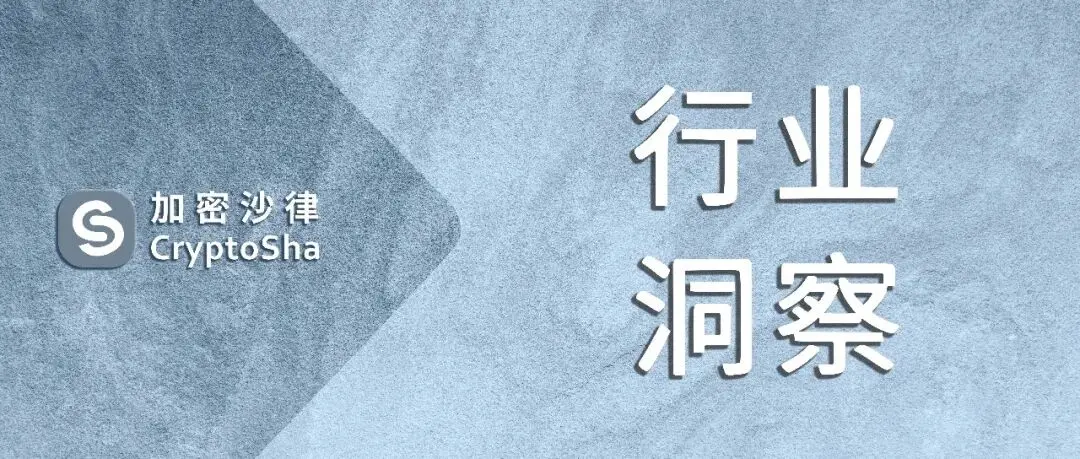Monad Labs: Enhancing EVM Performance through Parallel Execution and Innovative Consensus Mechanisms
Layer 1 blockchain Monad Labs recently announced the completion of a $225 million funding round, led by Paradigm, with participation from Electric Capital, SevenX Ventures, IOSG Ventures, and Greenoaks. This funding round is the largest in the cryptocurrency space so far in 2024. Monad Labs founder Keone Hon stated that Monad's goal is to rebuild the Ethereum blockchain, retaining the functionality of executing smart contracts while achieving faster transaction speeds, higher processing capacity, and lower costs, fully supporting EVM.

The project aims directly at existing high-performance blockchains like Solana and Sui, with strong financial backing and technological innovation showcasing its potential to become a top blockchain platform. Shortly after, HTX Ventures also announced a strategic investment in Monad Labs, further promoting innovation in the Web3 ecosystem.
The following content will delve into the details of the Monad Labs project, its technological innovations, and its potential impact on the existing blockchain ecosystem.
Beyond Limitations: The Security and Challenges of EVM, and Monad Labs' Innovative Path
The Ethereum Virtual Machine (EVM) is a significant innovation in blockchain technology; it is not only the computational engine of the Ethereum network but also the core for implementing smart contracts and decentralized applications (dApps). As a quasi-Turing complete system, the EVM allows smart contracts to execute seamlessly on the Ethereum blockchain, supporting the operation and innovative development of the entire network.
Core Functions and Architecture of EVM
The EVM executes smart contracts through bytecode, which is the result of compiling high-level languages (such as Solidity). These bytecode instructions control all operations, from arithmetic calculations to data storage and retrieval. As a stack-based machine, the EVM's operations are based on a last-in-first-out principle, with each operation consuming a certain amount of "gas." This mechanism measures the computational complexity of each operation, ensuring fair resource usage and preventing network abuse.
In Ethereum, transactions can be categorized into two types: triggering message calls and contract creation, where contract creation transactions generate a new contract account on the blockchain, containing the corresponding compiled smart contract bytecode. The execution of smart contracts involves multiple components of the EVM, including the stack, memory, and persistent storage, the latter of which retains the contract state on the blockchain.
Security Mechanisms of EVM
To ensure the secure execution of smart contracts, the EVM has designed various protective measures. These include isolating the execution environment to prevent reentrancy attacks, setting gas costs, and imposing stack depth limits. These security features are crucial for maintaining trust and consistency within the network.
Impact and Expansion of EVM
The influence of EVM extends far beyond Ethereum itself, as many EVM-compatible chains undertake the task of pushing this technology towards broader applications. These compatible chains not only maintain high compatibility with Ethereum applications but also seamlessly interact with mainstream Ethereum applications like MetaMask and Etherscan, significantly promoting their use in enterprise solutions, GameFi, and decentralized finance (DeFi).
However, despite the widespread deployment of EVM in the blockchain space, its limitations in processing speed and cost efficiency are becoming increasingly apparent. This has prompted projects like Monad Labs to address these bottlenecks through technological innovation, advancing parallel processing techniques and optimizing consensus mechanisms, which not only remain compatible with EVM but also greatly enhance transaction speed and system efficiency, showcasing the development direction of next-generation blockchain technology. Through such innovations, projects like Monad aim to improve the overall performance of blockchains while addressing the scalability issues of existing technologies to support a wider range of application scenarios and more complex business needs.
Monad Labs: An Innovative Ethereum-Compatible Layer 1 Blockchain Platform
A New Hope to Break Through the Performance Limits of the Ethereum Virtual Machine
Monad Labs was founded in 2022 by former Jump Crypto senior engineers Keone Hon and James Hunsaker, aiming to solve the performance limitations of the Ethereum Virtual Machine (EVM) through technological innovation. Shortly after the project launched, in February 2023, Monad Labs completed a $19 million seed funding round. By March 2024, Paradigm led over $200 million in funding, creating the largest funding round in the cryptocurrency space that year.

Technological Revolution: Superscalar Pipelines and Parallel Execution
Monad is a high-performance Ethereum-compatible L1 blockchain that significantly enhances system throughput and transaction speed through innovative technologies. Specifically, Monad has optimized in the following four main areas:
MonadBFT - An optimized consensus algorithm that employs a pipelined HotStuff BFT model, enhancing consensus efficiency.
Delayed Execution - By separating the consensus and execution processes, it reduces latency and improves execution speed.
Parallel Execution - Utilizing optimistic parallel algorithms to optimize transaction processing, supporting over 10,000 TPS processing speed.
MonadDB - A high-performance state backend database that optimizes data storage and access speed.
These technological innovations not only enhance performance but also ensure compatibility with existing EVM applications, allowing migration to Monad without modification.
Market Strategy: Effective Community Engagement
Monad Labs is not only seeking innovation in technology but also has a highly targeted and creative marketing strategy. The team frequently interacts with the community through Twitter and Discord, boasting a large following. They regularly hold meme contests, leveraging community creativity to energize marketing activities, effectively increasing user engagement and project visibility.
Highly Portable and Performance-Exceeding Next-Generation Blockchain Platform
Monad offers users and developers the best of both worlds: high portability and outstanding performance.
Portability: Monad fully supports EVM bytecode, meaning applications developed for Ethereum can migrate to Monad without code changes, and complete compatibility with Ethereum RPC API allows commonly used tools like MetaMask and Etherscan to be used directly.
Performance: Through its technological innovations, Monad achieves a throughput of 10,000 transactions per second and a block time of under one second, significantly outperforming most blockchain platforms currently on the market.
Monad: The Next-Generation Blockchain Platform to Disrupt Ethereum?
Monad's optimizations not only improve transaction speed but also reduce operational costs, making it an ideal platform for developing decentralized applications (DApps). Through these technological innovations, Monad is expected to become the standard for Ethereum in the coming years, providing users and developers with more efficient and cost-effective blockchain solutions.
Each technological advancement of Monad is a challenge and progress against existing blockchain technologies, indicating that the future of decentralized applications will be broader and more deeply rooted. With its strong technological foundation and proactive market strategy, Monad Labs is gradually realizing its vision of becoming a high-performance blockchain platform.
Monad Labs: Unlocking Ethereum's Performance Bottleneck, Opening a New Era of Blockchain
As blockchain technology continues to evolve and the cryptocurrency market rapidly expands, the performance limitations of the Ethereum Virtual Machine (EVM) have become a pressing challenge, especially when handling large-scale transactions and application scenarios. In this context, Monad Labs, with its revolutionary parallel execution and superscalar pipeline technology, has significantly enhanced the processing capacity of the blockchain, raising throughput to 10,000 transactions per second.
Monad has not only achieved significant breakthroughs in technology but also ensures complete compatibility with Ethereum, allowing existing Ethereum applications to migrate seamlessly, greatly reducing migration costs for developers and lowering the usage threshold for users. Additionally, its innovative MonadBFT consensus mechanism and MonadDB state database provide strong guarantees for the security and stability of the blockchain.
As an important complement to the Ethereum ecosystem, Monad's emergence not only provides developers with more choices but also offers users a faster and more cost-effective blockchain interaction experience. In the future, as more applications and users join, Monad is expected to secure a place in the competition for high performance and scalability in blockchain.
Ultimately, Monad Labs' continuous innovation and development, along with its active community engagement and market strategy, indicate that it will play a key role in advancing new developments in blockchain technology standards. With the launch of its public testnet and the implementation of more optimizations, Monad will not only enhance the competitiveness of the Ethereum ecosystem but also bring broader benefits to developers and users worldwide.


























